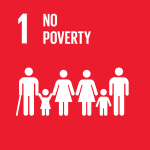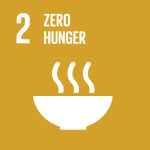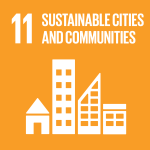
Photo: UNDP Viet Nam
Blog by Nguyen Thi Phuong Dung, Communications Analyst, UNDP Viet Nam
If you have a chance to visit the farm of Thi Dieu and Mang Min in Thuan Bac district in south Viet Nam, what you see will make you think of a football field: a hard and flat ground and little grass.
For three years, the farmland has been abandoned, cracked and dry due to intense drought. There was not enough rain for the corn to grow and produce seed. The whole field had only buds. Crop loss, soil depleted, financial loss. Hunger.
In order to raise three kids, Thi Dieu and her husband Mang Min, both Raglai ethnic minority, had to work other jobs. She said: “Since we can’t grow our own crops. It is lucky to get hired to make some money to buy food for my kids and ourselves”.
All over the Central Highlands and Central Coast regions of Viet Nam, similar stories are not hard to find. In many villages, most people leave their homes early in the morning to work as hired hands on other farms, that are rich and have the resources to keep their land irrigated. They leave behind their own drought ridden farmlands, and their children and parents.
A burning question is what should be done so that farmers like Thi Dieu and Mang Min can work on their own farmlands, harvesting food and making an income, instead of working low-paid job elsewhere.
Now, an initiative by the Ministry of Agriculture and Rural development and UN Development Programme in Viet Nam, with funding from the global Green Climate Fund, is looking at how to empower vulnerable smallholder farmers – particularly women and ethnic minority farmers – to tackle increasing risks from climate change to agricultural production.
The core pillars of the project include construction and non-construction measures, to help farmers to increase access to water, secure water, adopt climate-resilient agricultural practices, and strengthening access to agro-climate information so they can grow the right crops at the right time.

Farmer Field Schools and the central role of women and core farmers
Farmer Field Schools are crucial for resilient agriculture production. Through classes, farmers, together with grassroots extension officers and experts work together, discuss, and analyze farming techniques, and soil quality and crops to find best farming solutions.
"Now I know how to properly compost and re-fertilize the plants using leaves, straw, corn husks, and unwanted branches to save money and enrich the soil", said Thi Dieu, after attending one class.
Women and farmers who have taken the courses, play a central role in decision-making, and disseminating their knowledge to other farmers in their communities.
“I have shared this information with my fellow villagers. Now, all the farmers in our village use this method to maintain moisture on our farms," Thi Dieu told us when we visited her farm.

Agro-climate information
Under this project, farmers like Thi Dieu will also receive consolidated information of weather and recommendations from scientists about conditions such as, moisture and soil level, what should be added or reduced in cultivation, what crops should be reduced or increased, or intercropped and how to diversify crops, leading to higher incomes.
The project aims to help about 22,200 smallholder households like Thi Dieu and Mang Min to support them in working on their own farms, instead of being forced to take low-paid job elsewhere.
View the original blog on UNDP Viet Nam's site here.






